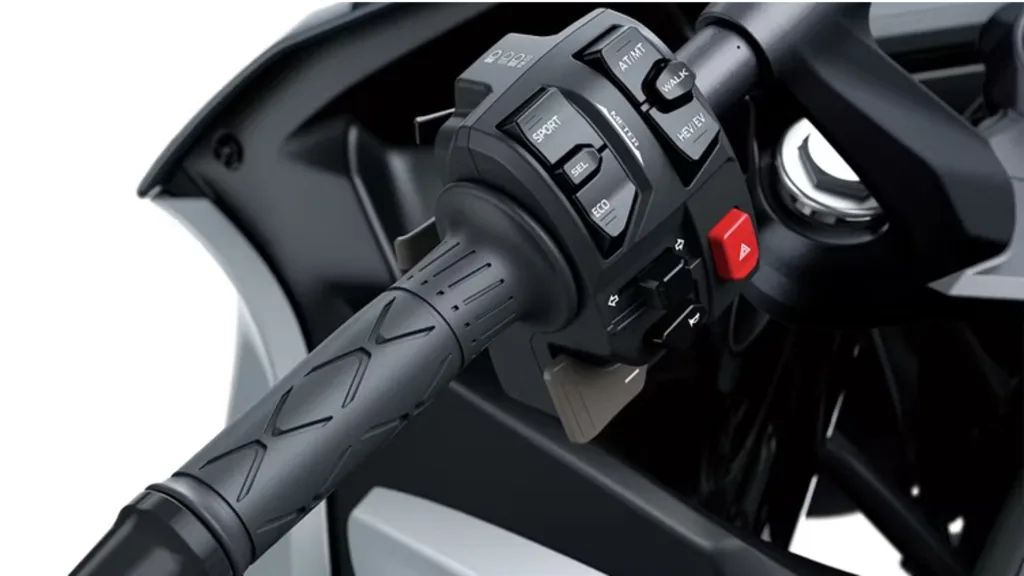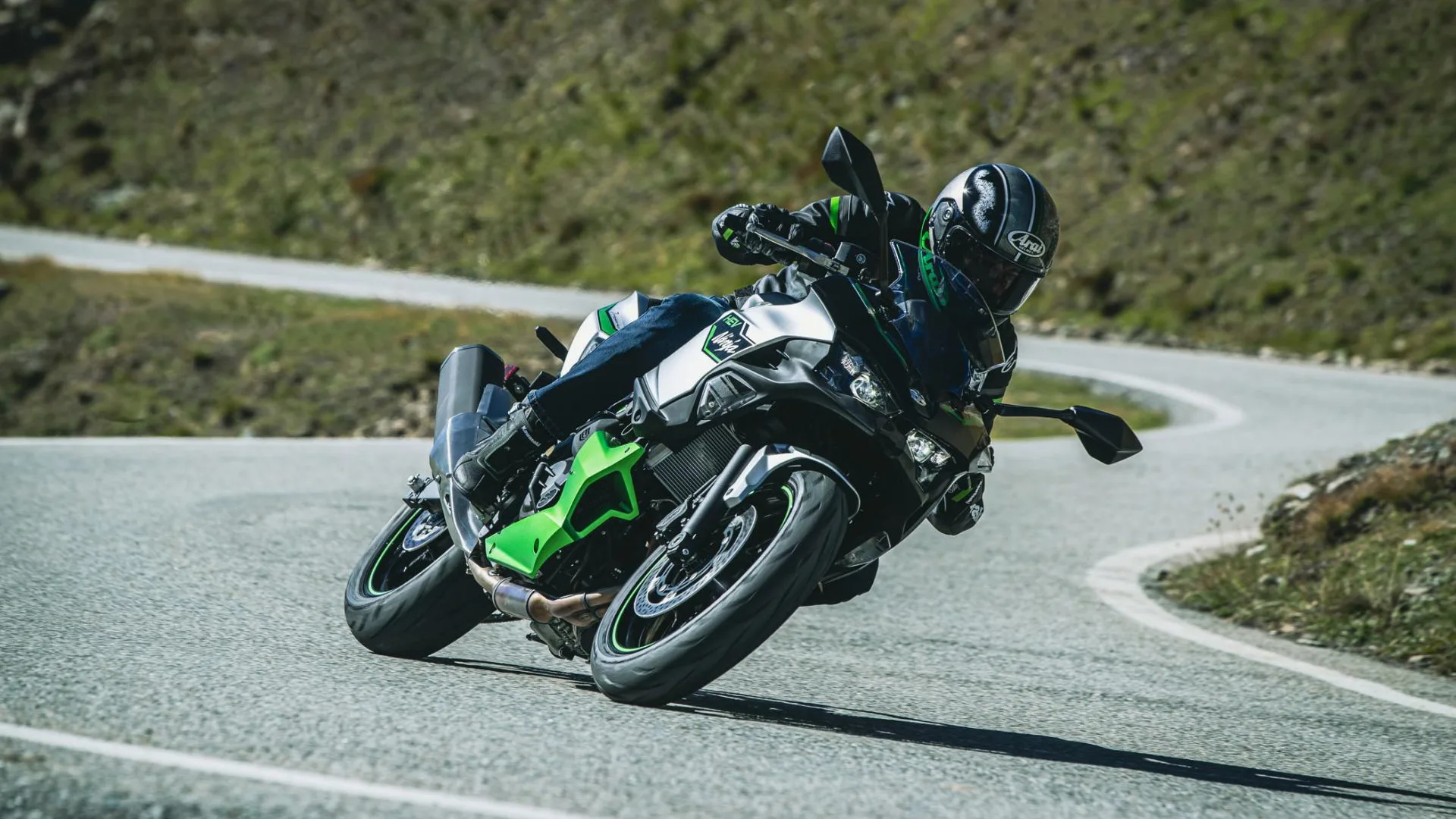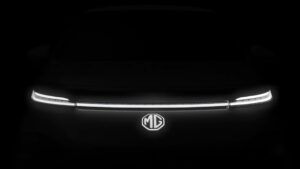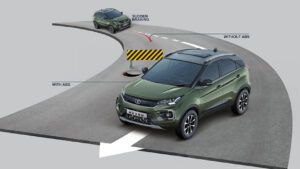India is a massive two-wheeler market and attracts many motorbike companies from different regions. Kawasaki, being one such player, recently patented the design for the Z e-1 electric bike and Ninja 7 Hybrid in the country. It indicates that the Japanese company plans to introduce these models in the Indian market.
While Kawasaki currently sells Ninja 500, Eliminator, ZX-6R, Versys 600, and many more products in the country, the company will aim to extend its portfolio by introducing new electric and hybrid bikes.
Kawasaki Z e-1 Electric Bike
Unveiled at EICMA 2022, the Z e-1 is Kawasaki’s first all-electric production bike. The electric bike has two removable 1.5kWh lithium-ion battery packs with a total capacity of 3kWh.
With a charging time of 3.7 hours for each pack (7.4 hours total), you can charge both packs separately with different chargers.
The electric motor that drives the rear wheel can generate peak power of 9kW and 5kW continuous power. Surprisingly, the Ola S1 Pro electric scooter produces more peak power of 11kW.
The Z e-1 has a top speed of about 79 km/hr in the Road mode and around 56 km/hr in the Eco mode. Interestingly, the electric bike gets extra power with an e-boost function, which is active for just 15 seconds at a time. When activated, the top speed increases to about 105 km/hr in the Road mode and around 68 km/hr in the Eco mode.
The Z e-1 switches automatically to Eco mode when the SOC (state of charge) drops to 35 per cent. Moreover, the use of the e-boost function isn’t possible in such a condition.
Kawasaki Ninja 7 Hybrid

Ninja 7 Hybrid is the first of its kind from Kawasaki. Similar to Ninja 500 (Rs 5,24,000, Ex-Showroom) and Eliminator (Rs 5,62,000, Ex-Showroom), the bike also has a 451cc parallel-twin cylinder. It can produce 44.7 bhp and 42.6 Nm of torque. However, the bike comes with an electric motor, which can increase the peak output to 60 bhp.
During a complete stop, the Ninja 7 Hybrid’s engine turns off to reduce emissions. Moreover, it automatically restarts with a twist of the throttle grip. Also, the three riding modes available in the Ninja 7 Hybrid are Sport Hybrid, Eco Hybrid and EV.
Interestingly, weighing 227kg, the Ninja 7 Hybrid is heavier than its ICE counterpart. Furthermore, unlike the typical clutch and gear shifter setup, the Ninja 7 Hybrid gets more sophisticated shift paddles in the left-side switchgear.
While Kawasaki patented the design of the Ninja 7 Hybrid & Z e-1 in India, it has not confirmed the launch of these bikes. However, bike enthusiasts in the country will be eagerly waiting for the Japanese company to unveil the electric and hybrid model of the bike.








